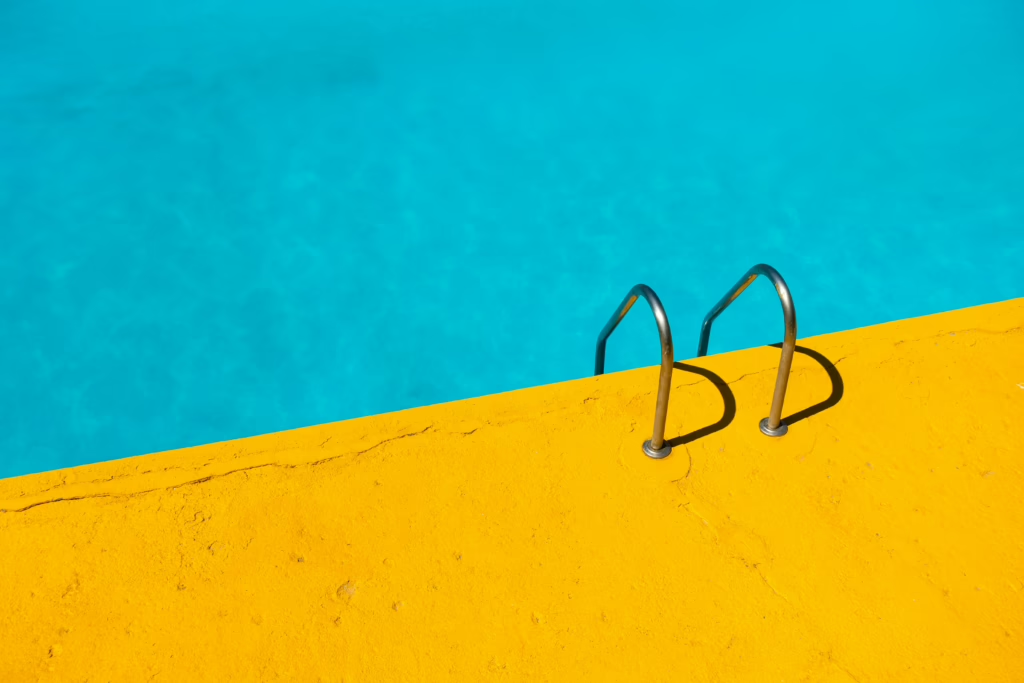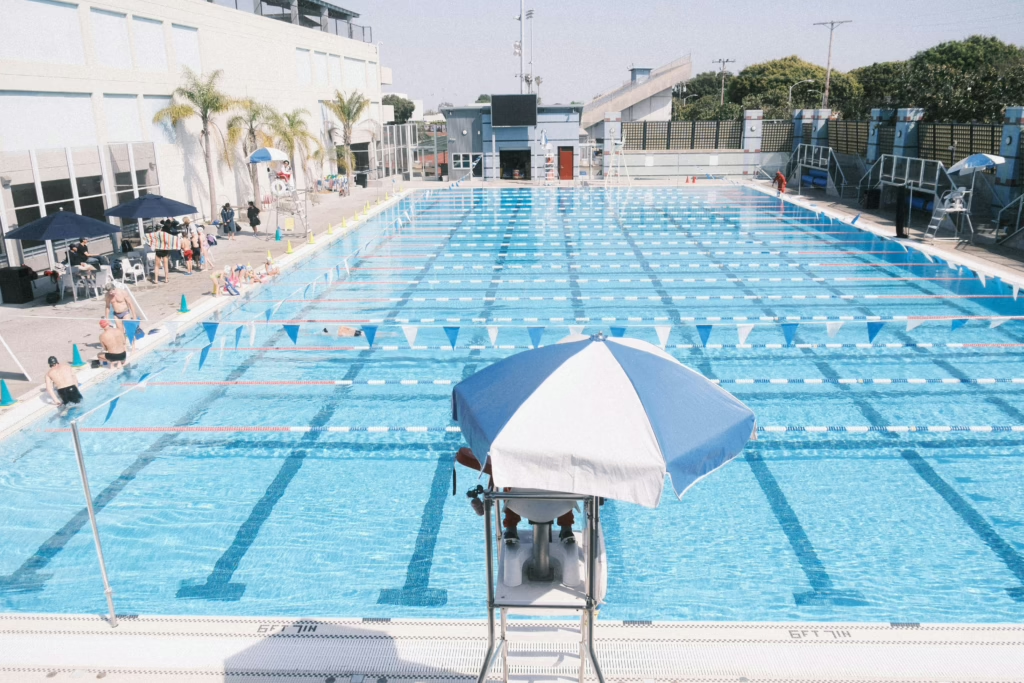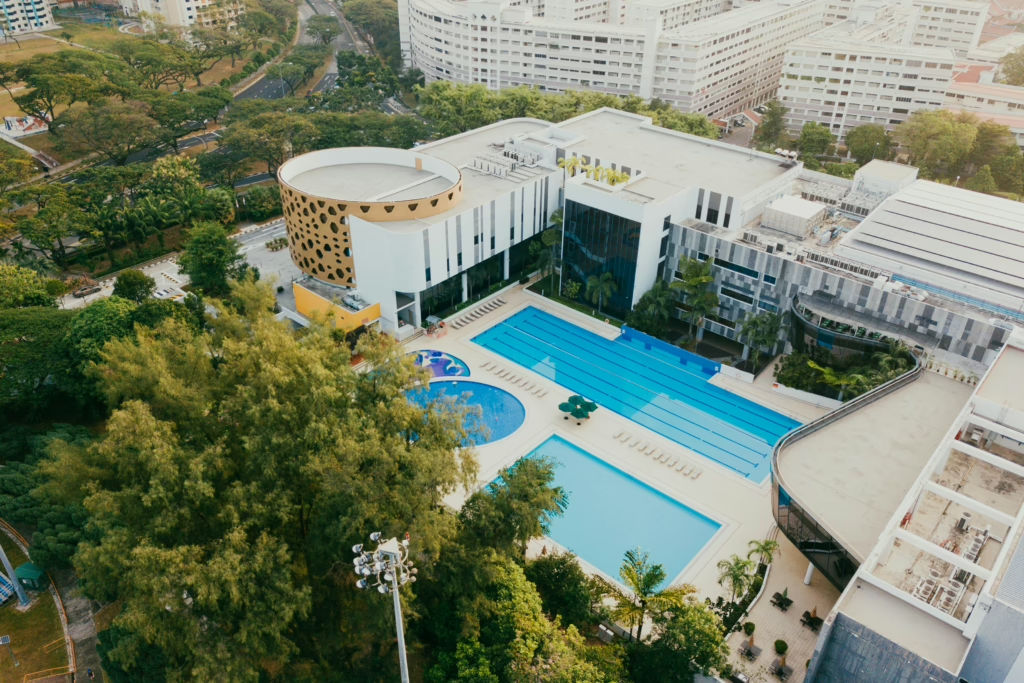A properly installed pool filter is crucial for maintaining clean, safe, sparkling water. It’s not just about aesthetics; your pool filter plays a vital role in ensuring your pool’s health and its circulation system’s efficiency. Incorrect installation can lead to inefficiencies, leaks, and frequent maintenance issues.
This step-by-step guide will walk you through the basics of installing a pool filter, whether sand, cartridge, or DE filter. However, professional installation is always the best choice for more complex setups or peace of mind. If you’re looking for pool filter and pump installation near me, PoolLogic San Diego is here to help with expert services tailored to your needs.
Step 1: Assessing Your Pool’s Needs
The first and most crucial step in installing a pool filter is selecting the right type for your pool. Every pool is unique, and factors such as pool size, type, and frequency of use play a significant role in determining the most suitable filter. A carefully chosen filter ensures clean, sparkling water and reduces energy consumption and maintenance costs over time.
Pool Size
The size of your pool is one of the primary considerations when selecting a filter. Filters are rated by their gallons-per-minute (GPM) capacity, which indicates how much water they can handle effectively within a given timeframe. To ensure your filter performs optimally, it must be able to accommodate your pump’s flow rate while handling your pool’s total volume.
For example, larger pools require filters with a higher GPM rating to maintain consistent water circulation and cleanliness. Conversely, smaller pools can function efficiently with filters designed for lower flow rates. Installing a filter that matches your pool’s size ensures even water distribution, thorough debris removal, and minimal strain on the system.
Pool Usage Frequency
Another critical factor to consider is the frequency of pool use. Pools used frequently, especially in areas like San Diego, which has year-round swimming weather, are exposed to higher levels of debris, dirt, and contaminants. This includes sunscreen oils, leaves, and other debris brought in by swimmers.
High-usage pools benefit from filters with robust cleaning capabilities and larger filter media areas. Durable and high-capacity filters, such as cartridge or DE filters, are ideal for managing the increased workload without frequent maintenance or replacement. On the other hand, pools that see occasional use may not require heavy-duty options, making a sand filter a more cost-effective choice.
Choosing the Right Filter Type
There are three main types of pool filters, each with its advantages and considerations. Understanding their features helps you make an informed decision:
1. Sand Filters
Sand filters are a popular choice for their simplicity and affordability. They push water through a bed of specially graded sand, which traps debris and contaminants.
- Advantages: Cost-effective, easy to maintain, and suitable for most pool sizes.
- Considerations: While low-maintenance, sand filters are less effective at capturing fine particles than other filter types. This may require additional chemical treatments to maintain water clarity.
2. Cartridge Filters
Cartridge filters use pleated fabric or material to trap debris. These filters offer excellent filtration and are often recommended for residential pools.
- Advantages: Cartridge filters are energy-efficient, require minimal maintenance, and capture finer debris than sand filters. They also eliminate the need for backwashing, reducing water waste.
- Considerations: While they are easy to clean, cartridges must be replaced periodically, adding to long-term costs.
3. DE Filters (Diatomaceous Earth)
DE filters are considered the gold standard for pool filtration. They use a powder made from crushed diatoms (fossilized algae) to filter water at a microscopic level.
- Advantages: Superior filtration that captures the tiniest particles, ensuring crystal-clear water.
- Considerations: DE filters require regular backwashing and reapplication of DE powder. They are more expensive upfront and involve slightly more maintenance than other filters.
Matching the Filter to Your Pool’s Needs
When choosing the right filter, it’s essential to consider how the filter’s capabilities align with your pool’s demands. For example, a residential pool with moderate usage might benefit from a cartridge filter’s balance of efficiency and ease. In contrast, a high-traffic commercial pool or a pool prone to heavy debris accumulation may require the advanced filtration power of a DE filter.
Climate conditions, such as those in San Diego, can also influence your choice. Pools in sunny, warm climates often face higher evaporation rates and debris from nearby landscaping. These factors might make filters with higher efficiency and lower maintenance requirements, such as cartridge or DE filters, a more practical choice.
If you’re unsure which filter is best for your pool, trust the professionals at PoolLogic San Diego. Our team specializes in pool filter and pump installation near me and offers tailored recommendations to meet your needs. Reach out today for expert guidance and a seamless installation process.
Step 2: Choosing the Right Location
Proper placement of your pool filter is critical for accessibility and efficiency. Installing the filter close to your pump and other pool equipment simplifies the plumbing and minimizes water loss.
Accessibility
Choose a location that allows easy maintenance access, such as cleaning or replacing filter media. Ensure there’s adequate space around the filter for airflow and safe operation.
Consider Surrounding Equipment
Place the filter downstream from the pump to ensure proper water flow. The filter should be on a stable surface to prevent vibrations or shifting during operation. Avoid locations prone to flooding or excessive sun exposure, as these conditions can impact the longevity of the equipment.
Step 3: Setting Up the Plumbing
Proper plumbing is essential to ensure your filter operates efficiently and without leaks.
Connecting the Filter to the Pump
Begin by attaching the pump’s discharge line to the filter’s inlet. Use fittings and pipe sealants to ensure a tight, leak-free connection. For multiport valves, connect the “return” line to the pool and the “waste” line for backwashing (if applicable).
Securing Fittings
Ensure all connections are secure, but avoid overtightening, which can damage threads or fittings. Double-check that the O-rings and seals are correctly seated to prevent leaks.
Avoiding Plumbing Errors
Improper alignment of pipes or valves can restrict water flow and reduce the filter’s efficiency. Make sure all plumbing is aligned correctly and avoid sharp bends or unnecessary joints that could disrupt water circulation.
Step 4: Testing and Adjusting
Once the filter is connected, testing and calibration are critical to ensuring the system operates smoothly.
Running the System
Turn on the pump and observe the filter as water begins to circulate. Check for leaks around fittings, connections, or the filter housing. If leaks are present, turn off the system and tighten or adjust connections as needed.
Calibrating the Filter
For multiport filters, set the valve to the correct position (e.g., “filter,” “rinse,” or “backwash”) based on your system’s requirements. Monitor the pressure gauge to ensure it falls within the manufacturer’s recommended range. High pressure indicates a potential clog or flow restriction, while low pressure suggests a possible air leak.
Final Adjustments
Observe water flow back into the pool to ensure it’s steady and clean. Your pool filter installation is complete if the system runs smoothly and efficiently.
FAQs: Pool Filter & Pump Installation Near Me
1. How much does pool filter installation cost near me?
The cost of pool filter installation depends on the filter type you choose and your pool size. Typically, installation costs range between $800 and $2,500, including the price of the filter and labor. The best option is to consult a professional in your area for an exact estimate tailored to your needs.
2. How do I choose the right pool filter for my pool?
Choosing the right filter requires considering factors such as pool size, frequency of use, and your willingness to perform maintenance.
Sand filters are budget-friendly and simple to maintain but may not effectively capture fine debris. Cartridge filters offer better filtration with minimal maintenance and energy efficiency, making them suitable for residential pools. DE filters provide the highest level of filtration, ensuring crystal-clear water, though they require more frequent upkeep.
A professional can guide you in selecting the best filter based on your pool’s requirements.
3. When should I replace my pool filter?
The lifespan of a pool filter varies depending on its type. Sand filters typically last 5 to 7 years, while cartridge filters need replacement every 3 to 5 years. DE filters, with proper maintenance, can last up to a decade. If you notice a decline in water clarity, reduced flow, or the need for frequent repairs, it may be time to consider replacing your filter.
4. What are the benefits of upgrading my pool filter?
Upgrading your pool filter can improve water quality, enhance energy efficiency, and reduce the time and effort required for maintenance. Newer filters are often designed to handle larger volumes of water more effectively and may provide better protection for other pool equipment by ensuring proper water flow and debris removal.
In the long term, an upgraded filter helps you save on energy and repair costs while keeping your pool cleaner and healthier.
5. How long does it take to install a new pool filter?
Installing a new pool filter usually takes two to four hours. The exact timeframe depends on the complexity of your pool’s plumbing system and the type of filter being installed. Additional adjustments and testing may be needed to ensure optimal performance.
6. How much does a pool pump installation cost near me?
The cost of installing a pool pump varies depending on the type and size of your pool. Generally, the price ranges from $500 to $1,800, including the pump and labor costs. Variable-speed pumps have a higher upfront cost but can provide significant energy savings over time, making them a worthwhile investment.
7. How do I choose the right pool pump for my pool?
Selecting the right pool pump involves matching its flow rate to your pool filter’s capacity to ensure efficient water circulation. Single-speed pumps are initially cost-effective but lack energy efficiency, while variable-speed pumps offer better control and lower operating costs. Considering factors such as pool size, plumbing design, and energy efficiency goals can help you make an informed decision.
8. Should I upgrade to a variable-speed pool pump?
Upgrading to a variable-speed pool pump offers significant advantages, including energy savings, reduced noise, and precise control over water flow. Although the initial cost is higher than single-speed pumps, the long-term benefits in energy efficiency and cost savings often justify the investment. Variable-speed pumps are handy for homeowners looking to reduce utility bills while maintaining optimal pool performance.
9. How long should a pool pump last?
With proper maintenance, a pool pump typically lasts 8 to 12 years. Regularly cleaning filters, inspecting seals, and promptly addressing minor issues can help extend your pump’s lifespan. If your pump becomes noisy, operates inefficiently, or requires frequent repairs, it may be nearing the end of its useful life and should be replaced.
10. What are the benefits of professional pool pump installation?
Professional installation ensures your pool pump is set up correctly and runs efficiently. Technicians will adequately size the pump to match your pool and filtration system, secure all connections to prevent leaks and ensure compliance with local energy efficiency standards. Additionally, many manufacturers require professional installation to validate warranties, giving you peace of mind and protecting your investment.
For reliable pool filter and pump installation near me, trust PoolLogic San Diego. Contact us today for expert advice, installation, and maintenance services to keep your pool running smoothly year-round!
Final Thoughts
A properly installed pool filter is essential for maintaining water clarity, system efficiency, and the overall health of your pool. Following these steps can ensure a successful installation and avoid common pitfalls like leaks or poor performance.
For complex installations or to ensure professional-grade results, turn to PoolLogic San Diego. If you’re searching for pool filter and pump installation near me, we’re here to provide expert guidance and reliable service. Contact us today to schedule your installation and enjoy a perfectly maintained pool year-round!



